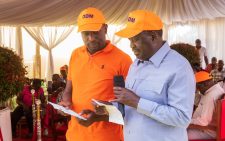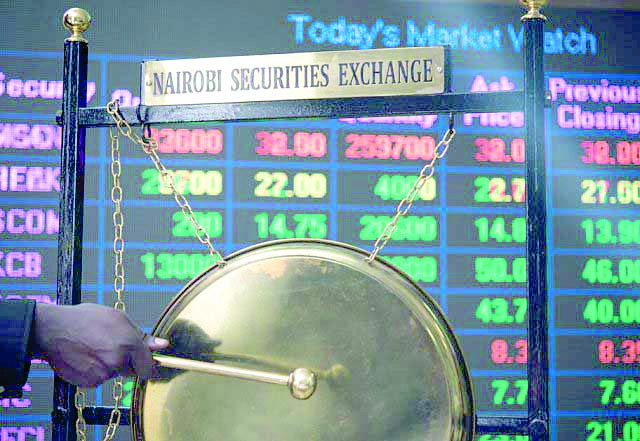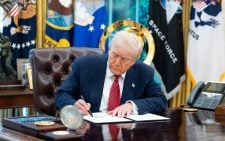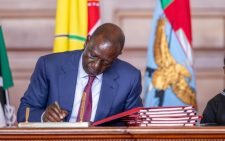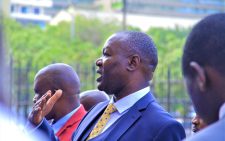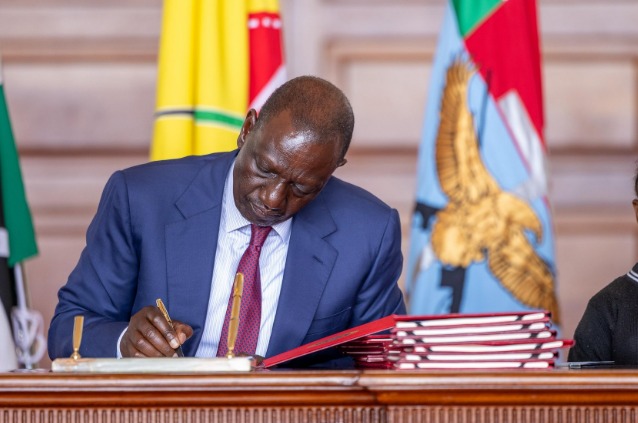No harambees after Dec 9, IEBC warns candidates
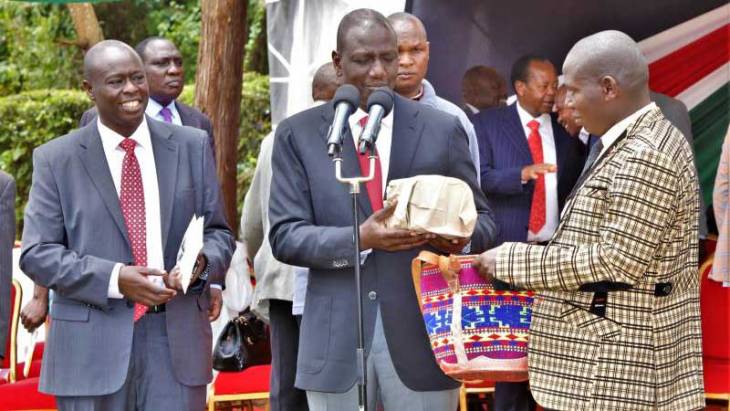
Politicians seeking to vie for elective positions in next year’s General Election have until December 9 to participate in harambees, the electoral commission has said.
Independent Electoral and Boundaries Commission (IEBC) chairman Wafula Chebukati warned that any candidate who violates the directive risk being disqualified from taking part in the elections.
Chebukati’s warning is based on sections of the law which prohibit candidates seeking elective seats in an election from participating in fundraisers.
Section 26 of the Elections Act provides that a person may be disqualified if he or she directly or indirectly participates in any manner in a public fundraising or harambee within eight months to a general election or during an election period.
Section 26 sub-section (1) states that such a person shall not apply to fundraise for a person who is contesting an election under the Act or to fundraise for a political party.
“Pursuant thereof, aspirants cannot participate in fundraising either by themselves or proxies within eight months to the election,” Chebukati said, adding that the prohibition includes participation, either by attendance or contribution.
“The import is to curb aspirants from influencing voters by donating funds or money for support,” Chebukati added.
The announcement will come as a shocker to hundreds of candidates eyeing various seats in the August 2022 General Election and who have lined up several fundraisers in aid of various projects to endear themselves to voters.
For many years, a candidate’s worth has been gauged on the basis of one’s ability to contribute towards various public projects, a culture which was perfected during the 24-year rule of second President Daniel arap Moi.
Churches have become some of the biggest beneficiaries of the donations from candidates gunning for various political seats. Deputy President William Ruto, known for his generous contributions to churches, has come under constant criticism from Orange Democratic Movement leader Raila Odinga and his allies over the source of the millions he donates to churches every weekend.
Yesterday, Chebukati said the deadline for political candidates to participate in harambees lapses at midnight, December 9.
The IEBC boss was speaking when he appeared before the Senate committee on Justice, Legal Affairs and Human Rights to shed light on the commission’s preparedness for next year’s General Election.
The nine-member committee, chaired by Nyamira Senator Okong’o Omogeni, had sought to know the last date for aspirants to participate in fundraisers and when they stop fundraising for their campaigns.
Campaign period
Citing Section 26 sub-section (2) of the Act, Chebukati said aspirants or participating political parties are allowed to hold harambees to raise money for their campaigns.
“This has no cut-off-date within the meaning of sub-section (2) but is a time-frame that is then regulated under the Election Campaign Financing Act, 2013, that provides for the total amount one can fund-raise and period of fundraising (which timelines are now subject of the Election Campaign Financing (Amendment) Bill 2021),” he said.
He warned contenders against engaging in early campaigns or erecting campaign billboards or posters before the official campaign period, saying such actions are in breach of the Elections Act and as such an Electoral Offence punishable under the Election Offences Act, 2016.
He cited Section 2 of the Elections Act, which defines campaign period as the time specified as such in the notice issued by the commission in relation to an election.
“Therefore, Official Campaign Period for purposes of the 2022 General Election is yet to be published,” he said.
“It is also to be appreciated that campaigns only commence once one has been registered as a candidate by the IEBC to contest for elections,” he added.
Read together with Section 14 of the Elections Act which provides for the initiation of a General Election, it follows that any ongoing campaign drive, including the erection of campaign posters, is tantamount to a breach of the Elections Act and as such an electoral offence punishable under the Election Offences Act, 2016, Chebukati told the committee.
Meanwhile, IEBC has said that Kenyans living abroad who wish to register as voters will have an opportunity to do so to enable them to participate in the next August elections.
In 2017, the commission registered Kenyans living in the Diaspora as voters in South Africa, Uganda, Tanzania, Rwanda and Burundi.
For purposes of the 2022 elections, Chebukati said the commission plans to extend the Diaspora voter registration exercise to the United Kingdom, Canada, the United States of America, South Sudan, Qatar, the United Arab Emirates and Germany.
